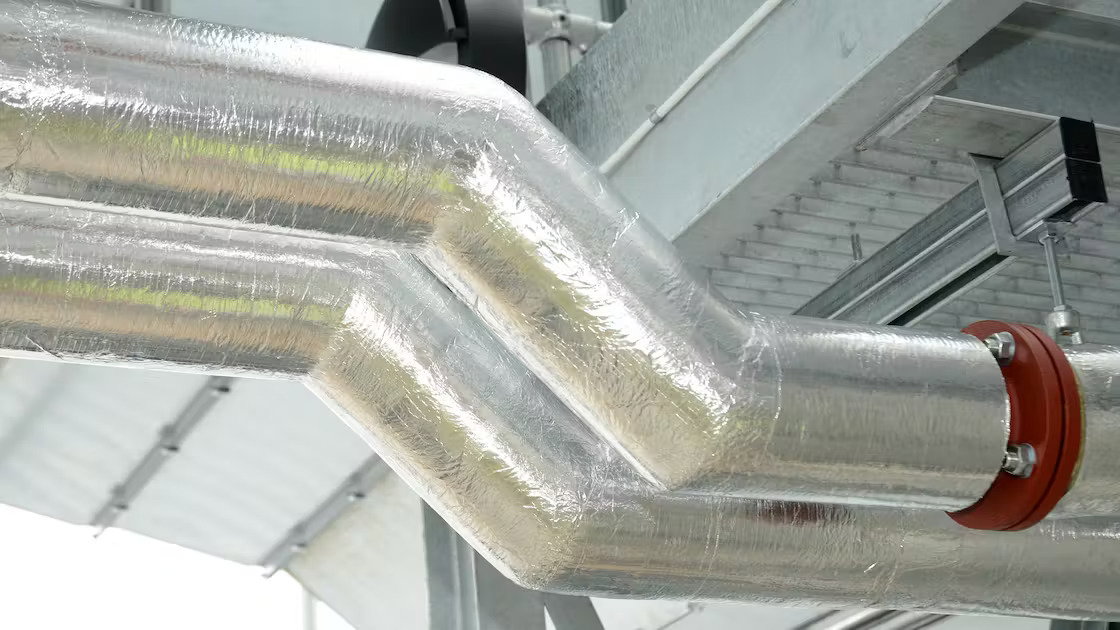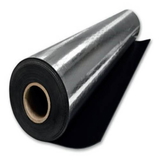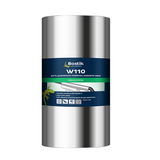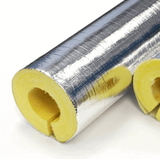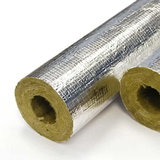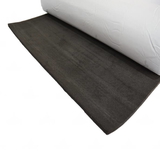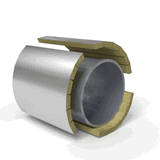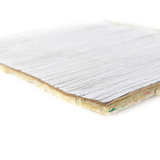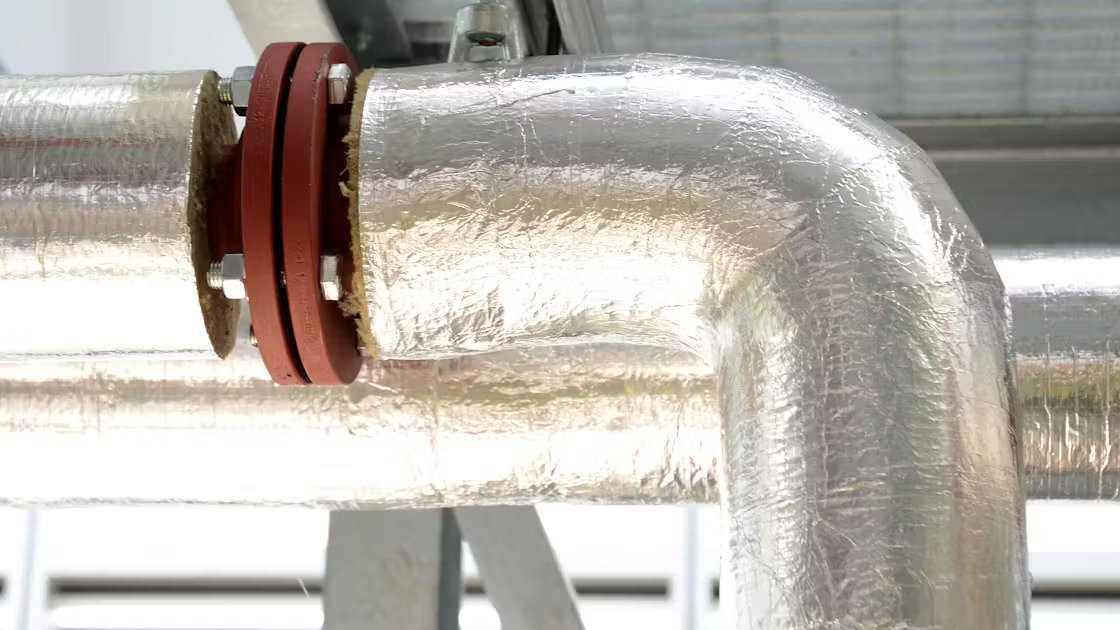- Blogs
- Drain and Soil Pipe Insulation A Guide
Drain and Soil Pipe Insulation A Guide

Insulating your drain and soil pipes helps prevent freezing, reduces noise, and protects against damage. For drains, insulation like foam or fiberglass ensures pipes don't freeze and minimizes condensation. Soil pipes benefit from acoustic insulation, which reduces noise and vibrations, essential for multi-story buildings or close quarters. Popular materials include Rockwool for noise reduction and rubber insulation for ease of installation and thermal protection. Guarantee proper installation with overlapping wraps and secure sealing, especially in unheated areas. You can buy these insulations at hardware stores or online from brands like Armacell and Rockwool. Discover the best practices by exploring further.
Key Takeaways
- Insulating drain pipes prevents freezing, reducing costly repairs and energy costs.
- Acoustic insulation for soil pipes reduces noise and vibrations, enhancing living conditions.
- Materials like Rockwool, rubber, and polymeric barriers are effective for noise reduction and thermal protection.
- Proper installation includes ensuring overlap and sealing of wraps for optimal insulation performance.
- Quality insulation products can be found at hardware stores, plumbing supply shops, and online.
Understanding Drain and Soil Pipes ![]()
When it comes to maintaining a reliable plumbing system, understanding the roles of drain and soil pipes is essential. Drain pipes carry greywater from sinks and showers, whereas soil pipes handle soiled water from toilets and urinals. Because soil pipes are wider in diameter, they can accommodate solid waste more effectively.
Now, you might wonder why insulation is vital for these pipes. Acoustic pipe insulation, for instance, helps reduce noise and vibrations caused by water flow, creating a more peaceful home environment. Soil pipe soundproofing is especially useful in multi-story buildings where noise from flushing toilets can be disruptive.
By investing in soil pipe insulation, you're not just protecting against freezing and potential damage, but also enhancing your home's comfort.
Drain pipe insulation also plays a significant role in preventing heat loss and reducing the risk of freezing in colder climates. Insulating your pipes ensures you maintain proper water flow, safeguarding your plumbing system from costly repairs due to burst or blocked pipes.
Different insulation products, such as wraps and foam insulation, are available for both drain and soil pipes, making it easier to find a solution tailored to your needs.
Benefits of Drain Pipe Insulation
When you insulate your drain pipes, you prevent them from freezing, which can save you from costly repairs.
Additionally, insulation helps reduce noise from water flow, making your home quieter.
These benefits not only protect your pipes but also improve your overall living environment.
Buy Pipe Insulation Online
Pipe Insulation Prevents Drain Pipes Freezing
In colder climates, insulating your drain pipes is important to prevent them from freezing and causing extensive damage. When temperatures drop, uninsulated pipes can freeze, leading to blockages or bursts that result in costly repairs. By adding insulation, you maintain a consistent temperature, ensuring water flows smoothly and reducing the risk of such incidents.
Insulating your drain pipes doesn't just protect against freezing; it also helps reduce heat loss. This means you're not only safeguarding your home but also saving on energy costs. Additionally, proper insulation minimizes condensation buildup, which can otherwise lead to mold and mildew growth—a common concern in many households.
Choosing the right insulation material is essential. Foam, fiberglass, and rubber are popular options, each offering specific benefits depending on your needs. Consulting with a professional plumber can guide you to the best choice for your situation, ensuring optimal protection.
Soundproofing Soil Pipe Insulation
Adding insulation to your soil pipes not only prevents freezing but also significantly improves noise transmission within your home. This soundproofing measure is especially beneficial in creating a peaceful and comfortable living environment. When you insulate your soil pipes, you minimize breakout noise and vibrations caused by plumbing activities. This upgrade can make a world of difference, particularly in multi-story homes where the sound of water rushing through pipes can become a nuisance.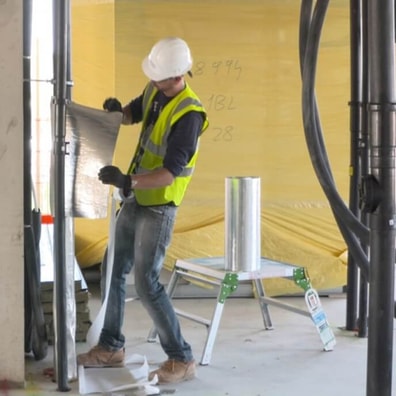
Various insulation products are available to achieve effective soundproofing. Options like wraps and acoustic panels can be easily applied to your soil pipes, reducing the noise they emit. By doing so, you'll enjoy a quieter home, with fewer disturbances from everyday plumbing operations.
Additionally, soundproofing your soil pipes contributes significantly to a sense of privacy. You won't have to worry about bathroom noises disrupting other activities or conversations. Overall, this simple step can elevate the quality of life in your home by creating a more serene atmosphere.
Don't hesitate to consult with a professional to choose the best insulation materials and methods to suit your needs.
Choosing the Right Insulation Material for Drain and Soil Pipes
When choosing the right insulation material for your drain and soil pipes, consider options like Rockwool for soundproofing, rubber acoustic pipe insulation for soil pipes, and polymeric barriers for additional acoustic control. Each material offers unique benefits, so you'll want to match the insulation to your specific needs.
Think about factors like noise reduction, moisture resistance, and ease of installation to make the best choice.
Rockwool for Soundproofing Pipes
One excellent option for soundproofing drain and soil pipes is Rockwool insulation, known for its superb acoustic properties. It's a popular choice because it effectively reduces noise transmission through pipes, creating a quieter environment in your home or building.
Rockwool insulation is available in different forms, such as pipe sections or ductwrap, to suit various pipe sizes and installation needs. This versatility makes it easy to find the right fit for your specific project.
The dense structure of Rockwool helps absorb sound vibrations and significantly reduces noise levels. When you install it correctly, Rockwool insulation can dramatically improve the soundproofing of your pipes, enhancing overall comfort and peace in your space.
Rubber Acoustic Pipe Insulation for Soil Pipes
Rubber acoustic pipe insulation offers a versatile and effective solution for reducing noise transmission in soil pipes, much like Rockwool does for soundproofing. When you're dealing with the constant sound of water flow and vibrations, this material can be a game-changer. Its flexibility and ease of installation make it a popular choice among homeowners looking to improve their drainage system's efficiency and quietness.
Consider these benefits of rubber acoustic pipe insulation:
- Noise Reduction: It significantly lessens the sounds of water running through your pipes, creating a quieter living environment.
- Thermal Insulation: Besides reducing noise, it also provides excellent thermal insulation, preventing pipes from freezing in colder climates.
- Easy Installation: The flexible nature of rubber makes it easy to wrap around pipes of various sizes, ensuring a snug fit and effective coverage.
- Durability: Rubber is a resilient material that can withstand fluctuations in temperature and pressure, prolonging the life of your plumbing system.
Choosing the right insulation material, like rubber acoustic insulation, not only helps maintain a quiet home but also guarantees your drainage system operates efficiently and reliably. This small investment can lead to significant improvements in your overall comfort and peace of mind.
Polymeric barriers and other types of acoustic pipe insulation
Selecting the right insulation material for drain and soil pipes involves evaluating options like polymeric barriers and acoustic wraps to ensure the best noise reduction and thermal protection.
Polymeric barriers, such as mass-loaded vinyl and acoustic foam, are excellent for soundproofing. They come in various sizes and thicknesses, catering to different pipe diameters, and help absorb and dampen noise, ensuring a quieter drainage system.
Acoustic wraps made from materials like neoprene or rubber are also effective for reducing noise transmission in drain and soil pipes. These wraps are designed to fit snugly around pipes, providing an extra layer of insulation that minimizes sound. You'll find self-adhesive pipe wrap rolls particularly convenient. They offer a quick and easy solution for insulating pipes, making the installation process straightforward.
Choosing the right material depends on your specific needs. If noise reduction is a priority, mass-loaded vinyl and acoustic foam are solid choices. For ease of installation, self-adhesive wraps might be the way to go.
Regardless of your choice, properly insulating your drain and soil pipes will optimize your plumbing system's efficiency and longevity, giving you peace of mind and a quieter home.
Proper Installation Techniques ![]()
Ensuring proper installation techniques for drain and soil pipe insulation is essential for maximizing their effectiveness and longevity. To achieve the best results, follow these steps carefully.
First, choose insulation wraps specifically designed for soil pipes to reduce noise transmission and prevent condensation. When applying these wraps, make sure you overlap and seal them correctly to guarantee effective soundproofing. This helps in maintaining a quiet and efficient plumbing system.
Next, select insulation materials with high sound absorption properties. These materials are vital for excellent noise reduction, especially in homes where peace and quiet are valued. Don't forget to install insulation around soil pipes in unheated areas to prevent them from freezing during cold weather. This step is critical for avoiding potential damage and costly repairs.
Regular inspection and maintenance of your insulation are key to ensuring its continued performance. Over time, wear and tear can reduce the effectiveness of your insulation, so it's important to keep an eye on it.
Here are some steps to guide you:
- Overlap and seal insulation wraps properly
- Use high sound absorption materials
- Insulate pipes in unheated areas
- Regularly inspect and maintain insulation
Where to buy soil and drain pipe insulation
You can buy soil and drain pipe insulation at hardware stores, plumbing supply shops, and online retailers. When you're searching for insulation, look for products specifically designed for soil and drain pipes. This guarantees they fit properly and work effectively to protect your plumbing.
Consider factors like pipe diameter, material, and insulation type. These details are essential for picking the right product for your needs. Brands such as Armacell, Rockwool, and Knauf offer a variety of insulation options that can cater to different requirements. Their products are known for quality and reliability, making them a good choice for your project.
When shopping online, check product specifications and read reviews. This helps you make an informed decision and ensures you get the best insulation for your situation. Reviews provide insights from other buyers, giving you a better understanding of the product's performance.
Frequently Asked Questions
How to Insulate a Soil Pipe?
To insulate a soil pipe, wrap it with foam or rubber insulation sleeves. Make sure the insulation fits snugly around the pipe. Secure with tape or clamps. This will help reduce noise and prevent condensation buildup.
What Is the Best Way to Insulate Drain Pipes?
To insulate drain pipes effectively, wrap them in foam, fiberglass, or rubber sleeves. Make sure you measure your pipes first. You'll prevent freezing, condensation, and noise, ensuring your home's plumbing stays efficient and protected.
What Are the Rules for Soil Pipes in the UK?
You must make sure soil pipes are 75mm for horizontal and 100mm for vertical sections. Support them well to prevent sagging, maintain a 1:40 fall, extend above the roofline for ventilation, and follow UK Part H regulations.
What Are the Rules for Soil Pipes in Nhbc?
You need to adhere to NHBC rules for soil pipes to guarantee they're properly sized, insulated, and compliant with building regulations. This helps prevent leaks and blockages, ensuring your home's plumbing system remains efficient and durable.
Conclusion
By insulating your drain and soil pipes, you're taking a smart step toward preventing freezing and costly damage. Choose the right materials, follow proper installation techniques, and you'll safeguard your plumbing system throughout the harsh winter months.
Remember, a little effort now can save you a lot of trouble later. So, get started on insulating your pipes today, and enjoy peace of mind knowing your home is protected.

Samuel Hitch
Managing Director
Buy Insulation Online.
Leave A Reply
Your feedback is greatly appreciated, please comment on our content below. Your email address will not be published. Required fields are marked *
